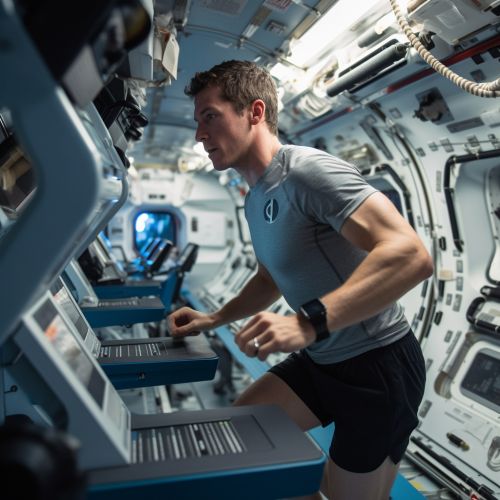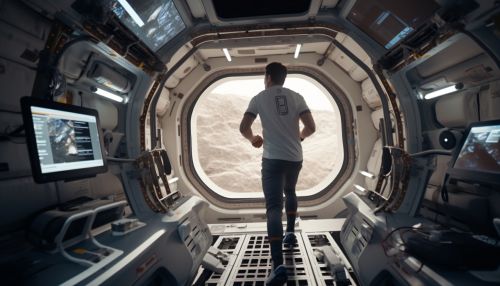Space medicine
Overview
Space medicine is a specialized field of medicine that focuses on the health and well-being of astronauts in the challenging environment of outer space. It encompasses a broad range of disciplines, including physiology, psychology, and environmental science, and is concerned with the prevention and treatment of conditions that can arise during space travel. Space travel is characterized by a unique set of environmental factors, such as microgravity, radiation, isolation, and circadian rhythm disruption, which can have significant effects on the human body.
History
The field of space medicine originated in the early 20th century with the advent of human spaceflight. The first manned space missions, conducted by the Soviet Union and the United States, highlighted the need for a specialized branch of medicine to address the unique challenges posed by space travel. Early space medicine research focused on understanding the physiological changes that occur in microgravity and developing countermeasures to mitigate these effects.
Physiological Effects of Space Travel
Space travel has profound effects on the human body, many of which are still not fully understood. These effects are primarily due to the absence of gravity, which leads to a number of physiological changes.
Microgravity
Microgravity, or the condition of weightlessness, is one of the most significant challenges faced by astronauts during space travel. It affects nearly every system in the body, leading to changes such as muscle atrophy, bone loss, and fluid redistribution.
Muscle Atrophy
In the absence of gravity, the muscles used for maintaining posture and locomotion on Earth are not needed, leading to muscle atrophy. This can result in significant muscle weakness and functional impairment.
Bone Loss
Microgravity also leads to bone loss, as the skeletal system is not subjected to the regular stresses of gravity. This can result in osteoporosis-like conditions and increased risk of fractures.
Fluid Redistribution
In microgravity, bodily fluids are redistributed, leading to a headward fluid shift. This can result in changes in cardiovascular function, vision problems, and other health issues.
Radiation
Space radiation is another significant health concern for astronauts. Unlike on Earth, where the atmosphere and magnetic field protect us from most space radiation, astronauts in space are exposed to high levels of ionizing radiation. This can lead to increased risk of cancer, damage to the central nervous system, and other health problems.
Countermeasures
A key focus of space medicine is the development of countermeasures to mitigate the physiological effects of space travel. These include exercise programs, pharmacological interventions, and technological solutions.
Exercise
Exercise is a key countermeasure for the effects of microgravity. Astronauts on the International Space Station (ISS) spend about two hours each day exercising, using specially designed equipment that simulates the effects of gravity.
Pharmacological Interventions
Pharmacological interventions, such as bisphosphonates for bone loss and recombinant human growth hormone for muscle atrophy, are also being explored as potential countermeasures.
Technological Solutions
Technological solutions, such as artificial gravity and radiation shielding, are also being developed to mitigate the effects of space travel.
Future Directions
As we look to the future of space travel, with plans for long-duration missions to Mars and beyond, the field of space medicine will continue to play a critical role. Research is ongoing to better understand the long-term effects of space travel on the human body and to develop more effective countermeasures.


